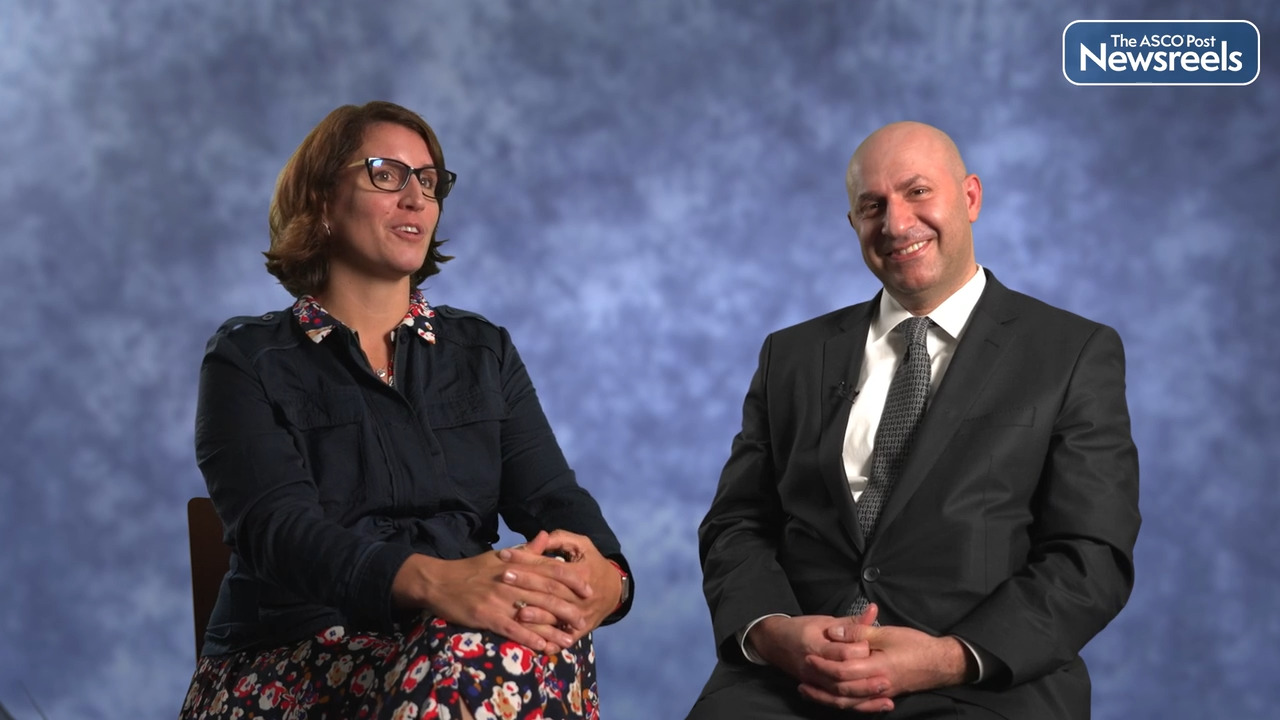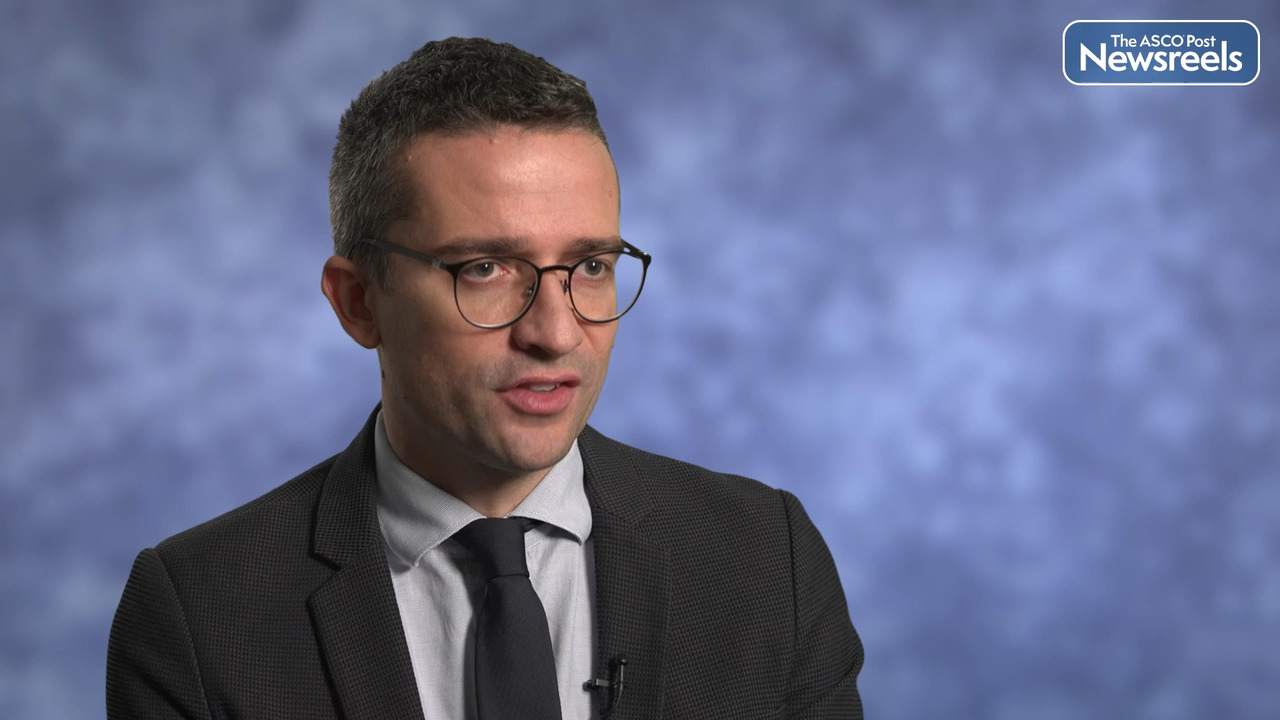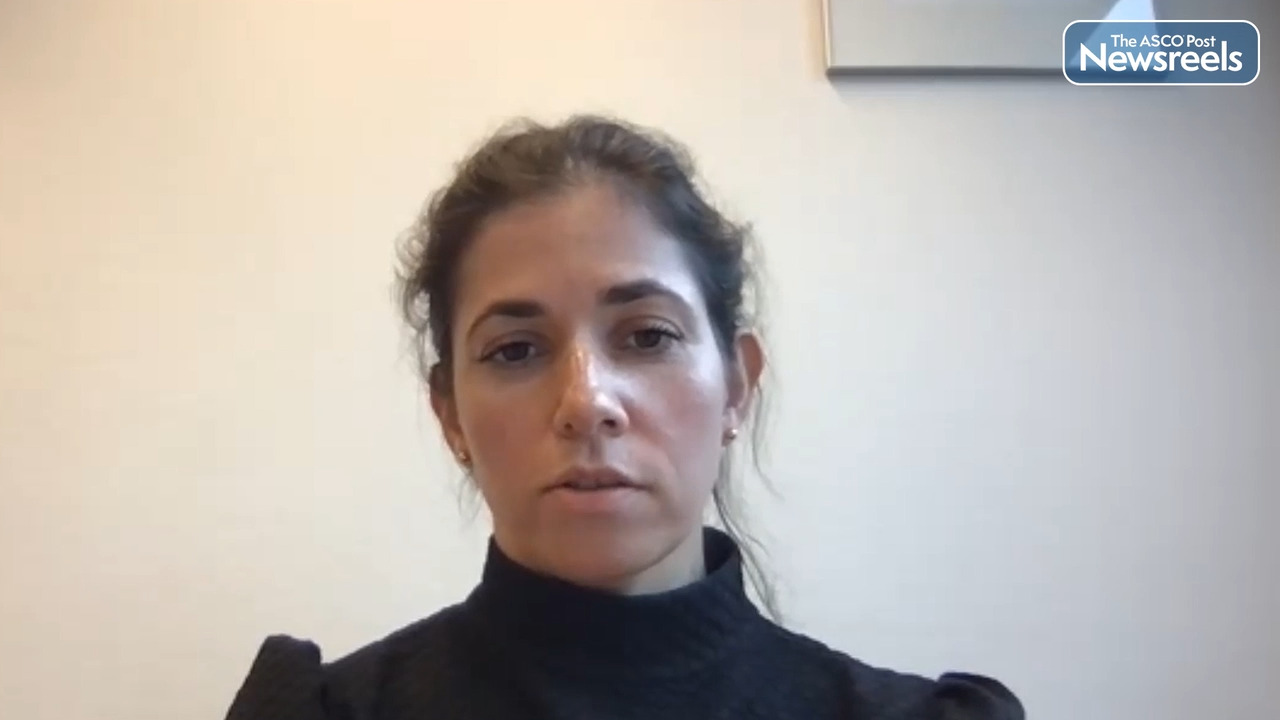John B.A.G. Haanen, MD, PhD, on Melanoma: Phase III Data on Treatment With Tumor-Infiltrating Lymphocytes vs Ipilimumab
ESMO Congress 2022
John B.A.G. Haanen, MD, PhD, of The Netherlands Cancer Institute, discusses recent phase III findings, which show that tumor-infiltrating lymphocytes (TILs) improve progression-free survival compared with ipilimumab by 50% in patients with advanced melanoma after not responding to anti–PD-1 treatment. Around 50% of TIL-treated patients had a response, and 20% had a complete response (Abstract LBA3).
Transcript
Disclaimer: This video transcript has not been proofread or edited and may contain errors.
At the ESMO Congress, I presented the results from the randomized controlled phase three trial comparing infusion with tumor infant lymphocytes to ipilimumab in patients with metastatic melanoma. The trial was designed for patients with cutaneous melanoma having failed at the maximum of one prior treatment. The majority, meaning almost 90% of the patients, had received prior anti PD one treatment when they went on the trial. Patients were randomized to receive either TIL treatment or ipilimumab. In total, 168 patients were randomized one to one, and the primary endpoint of the study was progression free survival by investigative review in the intention to treat population.
The results from this trial show a 50% reduction in risk of progression or death, in favor of the TIL treatment compared to ipilimumab. The median progression for survival for the TIL treat patients was 7.2 months compared to a 3.1 months for patients treated with ipilimumab.
When we look at the overall response rates, TIL compared much better than ipilimumab. We saw a 49% overall response rate for the TIL treat patients, 20% having complete remission. This compared to 21% for [inaudible 00:01:34] treated patients with 7% complete remission.
We did look at the overall survival and there was a trend for better overall survival for patients treated with TIL. However the study was not powered to show this overall survival. The median overall survival for the TIL treated patients was over 25 months compared to over 18 months. Therefore, the ipilimumab treated patients.
Side effects occurred in both treatment arms in all patients received that received TIL treatment. They had a grade three or higher adverse events. These adverse events could be attributed to the lymph repeating chemotherapy consisting of cyclophosphamide and [inaudible 00:02:16] or the high dose interleukin-2 that these patient received following TIL infusion.
These side effects had completely disappeared by the time the patients were released from the hospital, and there were no long term problems seen in these patients due to side effects. Also, health related quality of life, scores were better in patients treated with TIL compared to ipi, and this was maximum around 18 weeks after treatment. It was still visible at around one year after treatment.
So in conclusion, this is the first randomized control trial with a cell therapy in a solid cancer. In this case, treatment with TIL compared to ipilimumab for patient with advanced melanoma. And there was a clear difference in progression for survival and overall response rate in favor of the TIL treated patients and their side effects were manageable, and health related quality of life was better for the TIL treated patients.
So we think that TIL therapy could become a new treatment option for patients with metastatic melanoma. In future research, we will look at the infusion products, and also look for correlations between the cells in these infusion products and outcome. And hopefully we will be able to share those results at a later time point.
Related Videos
The ASCO Post Staff
Toni K. Choueiri, MD, of the Dana-Farber Cancer Institute, and Laurence Albiges, MD, PhD, of France’s Gustave Roussy Cancer Centre, discuss results from two important trials presented at ESMO 2022: Cohort 1 of the LITESPARK-003 study of belzutifan plus cabozantinib as first-line treatment of advanced renal cell carcinoma (RCC), and the KEYNOTE-B61 study of pembrolizumab plus lenvatinib as first-line treatment for non–clear cell RCC (Abstracts 1447O and 1448O).
The ASCO Post Staff
Matteo Lambertini, MD, PhD, of the University of Genova and Policlinico San Martino Hospital, talks about why oncofertility counseling should now be considered mandatory in the care of young women with breast cancer. Among the treatments he recommends offering are oocyte/embryo cryopreservation (or ovarian tissue cryopreservation in those not eligible for gamete cryopreservation); ovarian suppression with gonadotropin-releasing hormone agonist during chemotherapy; and long-term follow-up to improve the management of gynecology-related issues faced by these women.
The ASCO Post Staff
Myriam Chalabi, MD, PhD, of The Netherlands Cancer Institute, discusses data from the NICHE-2 study, which confirms previously reported pathologic responses to short-term neoadjuvant nivolumab plus ipilimumab in patients with locally advanced mismatch repair–deficient colon cancer. Survival data suggest neoadjuvant immunotherapy may become standard of care and allow further exploration of organ-sparing approaches. (Abstract LBA7).
The ASCO Post Staff
Martin Reck, MD, PhD, of Germany’s Lung Clinic Grosshansdorf, details two trials that included patients with advanced non–small cell lung cancer: 3-year survival outcomes in the EMPOWER-Lung 1 study of continued cemiplimab-rwlc beyond disease progression with the addition of chemotherapy, and phase III results from the IFCT-1701 trial of nivolumab plus ipilimumab 6-month treatment vs treatment continuation (LBA54 and Abstract 972O).
The ASCO Post Staff
Matthew P. Goetz, MD, of Mayo Clinic, discusses recent data from the MONARCH 3 trial of patients with advanced hormone receptor–positive, HER2-negative breast cancer. The study, a second interim analysis, showed that longer overall survival was observed in both the intention-to-treat group as well as in the subgroup with visceral disease. However, neither met the threshold for statistical significance, and further analyses are planned when more data can be reported. (Abstract LBA15).





